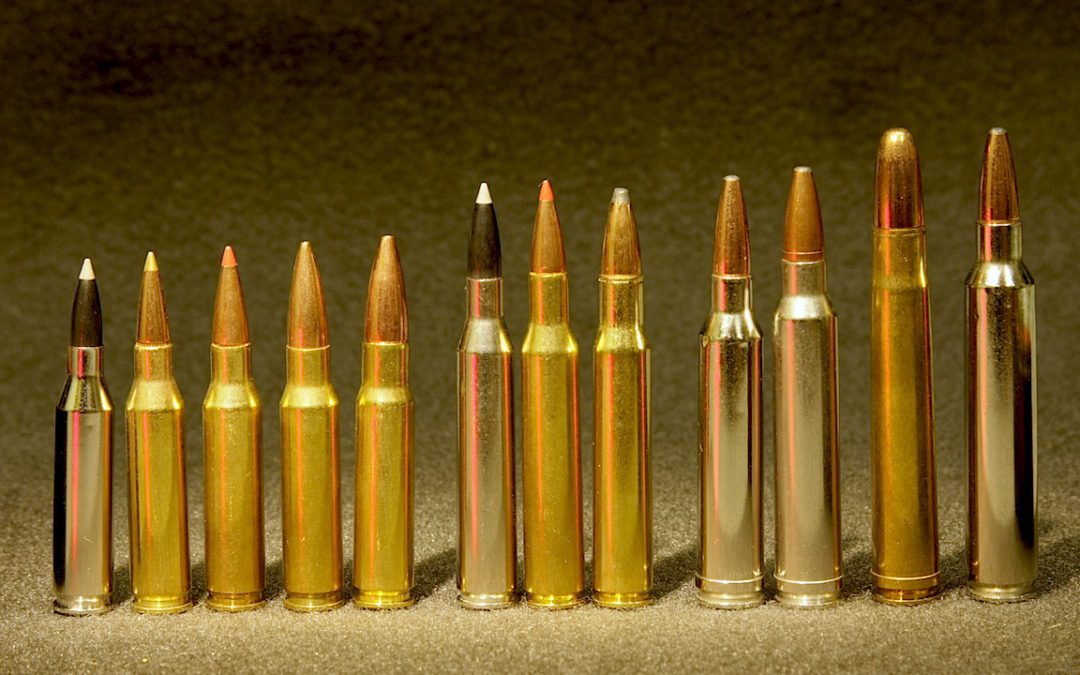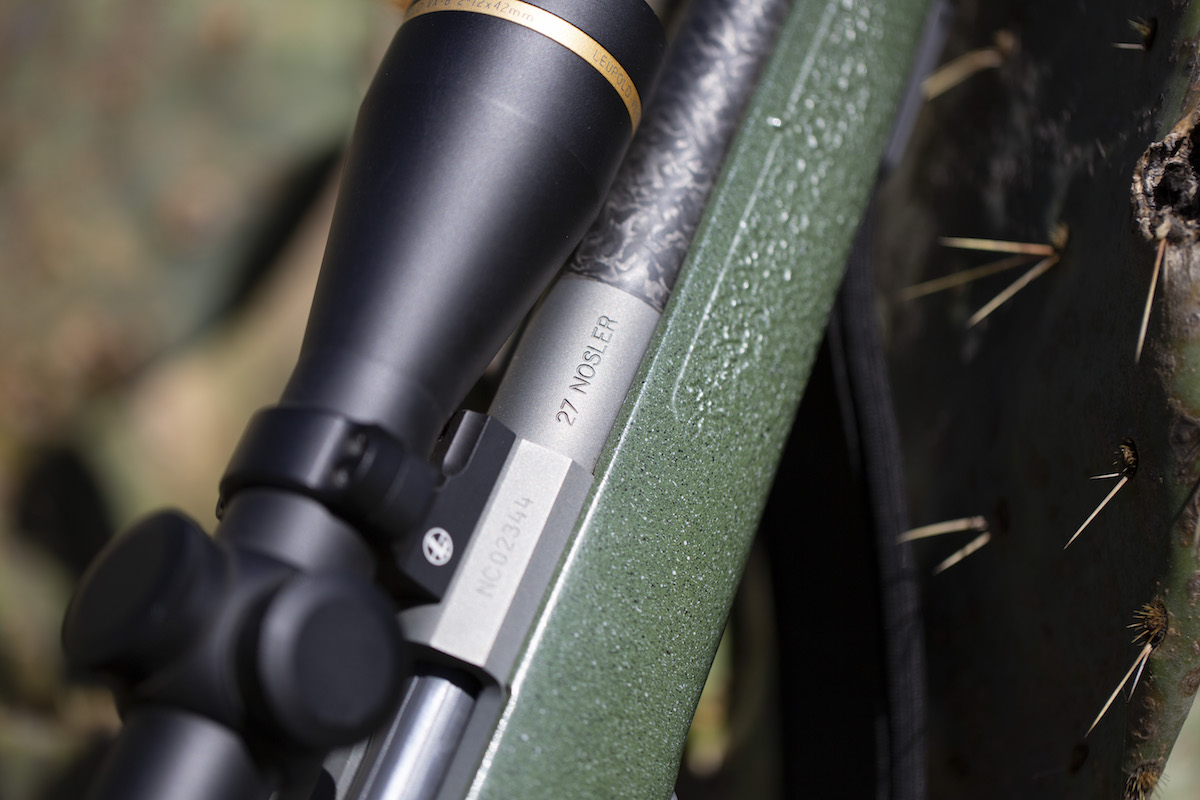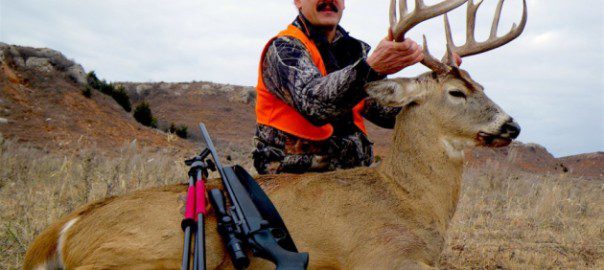When you’re talking hunting cartridges, it’s a family affair. Nepotism at its best. Practically Old Testament. Begat begat and begat again . . .
Variations on a theme is what they are. While hunters persist in imagining different cartridges possess magical properties, the reality is that most are nearly genetic matches with minor changes in power capacity and bullet diameter/weight. Those minor changes are, however, worth contemplating.
Our famous, old .30-06 (eighth from the left) was built by modifying the older, German 8mm Mauser. Check the dimensions of the two and you discover many more-than-coincidental similarities in head size and body diameter. The .30-06 was then necked to a narrower diameter to hold a .277-inch bullet and called, you guessed it, the .270 Winchester. Necked down further to grip a .257-inch projectile and it became the .25-06 Remington. Others in the clan not shown here are the .280 Remington, .338-06, 6.5-06 (wildcat), .243 Catbird (wildcat), and .35 Whelen. There have been .375 and .400 wildcat rounds, too.
The short-action .308 Winchester, which is itself just a shortened version of the .30-06 case, spawned plenty of efficient, famous cartridges. Shown above from left to right are the .243 Winchester, .260 Remington, 7mm-08 Remington, .308 Winchester, and .338 Federal. The .358 Winchester is not shown.
After Holland & Holland put a belt on a case to make its .375 H&H Magnum (second from the right) in 1912, that higher-volume powder container became the foundation for many high-velocity cartridges, starting with Holland & Holland’s own Super Thirty, later known better as the .300 H&H Magnum. In the 1940s Roy Weatherby straightened the walls of this sloping case and shortened it to the same overall length of the .30-06 to make a bunch of his famous belted magnums, including the .257, .270, and 7mm Weatherby Magnums. Winchester borrowed this idea to morph the belted H&H case into the .458, .264, .338, and .300 Winchester Magnums (third from the right) in the late ’50s and early ’60s. Remington bounced onto the belted band wagon with its 7mm Remington Magnum (fourth from right).
Lost on many shooters is how the similarities among family rounds results in similar performances. While hunters argue over the minor differences in downrange trajectory and punch between the .30-06, .270 Winchester, and .280 Remington, deer and elk can’t tell the difference. Hunting success is determined not by the cartridge, but by the right bullet in the right place.
For more from Ron Spomer, check out his website, ronspomeroutdoors.com, and be sure to subscribe to Sporting Classics for his rifles column and features.




